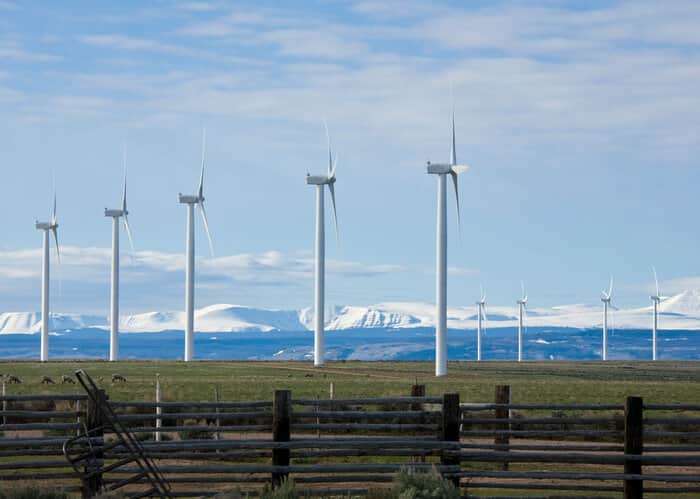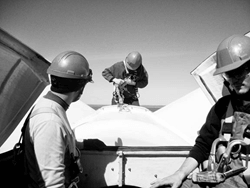Rock Island Clean Line LLC (Clean Line) says it has obtained a key regulatory approval from the Federal Energy Regulatory Commission (FERC) to begin negotiating transmission service agreements with potential customers of the transmission project – which will likely include wind energy developers and load-serving entities.
The Rock Island Clean Line is a 500-mile, overhead, high-voltage direct-current transmission line that will run from northwestern Iowa to an area near Chicago. The project will deliver 3.5 GW of the best wind energy resources in Iowa, Nebraska, South Dakota and Minnesota to communities in Illinois and other states to the east.
The FERC order was issued in response to the application filed by Clean Line in November 2011. This approval allows Clean Line to subscribe up to 75% of the line's capacity with anchor tenant customers and sell the remaining capacity through an open-season process. The anchor tenants will receive guaranteed capacity outside of the open-season process; however, the same terms and pricing will be offered in the open season.
In its application, Clean Line addressed the following standards: the justness and reasonableness of rates; the potential for undue discrimination; the potential for undue preference, including affiliate preference; and regional reliability and operational efficiency requirements. Clean Line also described why granting its request will be in the public interest.
Clean Line has conducted over 600 one-on-one meetings with stakeholders, hosted 33 open-house meetings to which over 40,000 landowners were invited to submit feedback on routing options, and held additional open houses in Illinois to introduce local businesses and labor groups to the Rock Island Clean Line project.
"This approval marks an important step forward in the steady progress of our Rock Island Clean Line project, which will bring considerable benefits to the existing grid by delivering low-cost clean wind power from northwest Iowa and the surrounding region to Illinois and states to the east,’ notes Michael Skelly, president of Clean Line.
The approximately $1.7 billion project is expected to achieve commercial operation in 2016 or 2017.



